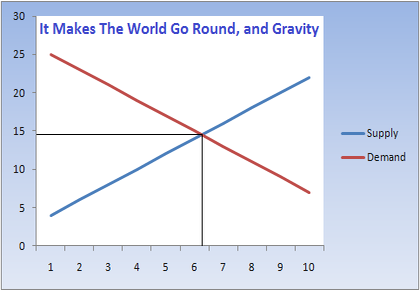Tonight on HBO’s new episode of The Newsroom Olivia Munn’s character, Sloan Sabbith, said something like investment banks are gamblers and commercial banks are where you have savings and checking accounts. I say something because I find it difficult to concentrate when Ms. Munn’s unmitigated beauty is presented in full high definition glory on my television set. The point is that while I am a big fan of Aaron Sorkin, the creator of the series, it is unacceptable even for the most adorable, and it truly is unfair how pretty looking and sounding Ms. Munn is, to propagate such falsehoods. Investment banks aren’t gamblers; underwriting, restructuring, and M&A are a few business lines that are lucrative and relative riskless. Proprietary or prop trading is substantially the entire focus of the statement. The issue at hand is should merchant and commercial banks be separated again? It is easy to say yes, isolating taxpayers from investment risk and allowing wholly private banks to engage in complex financial deals while insulating the commercial banking system that serves as the oil for the economic machine. On the other hand large multinational corporations want banks that can be full-service providers. These firms don’t want a bank in each country they operate in to cut payroll checks; they want to go to their one banker and describe their financing needs to receive the best advice from an institution replete with all available options: a revolving credit line for payroll, abs for a plant refit, or equity for multinational expansion. It is necessary for banks to be able to match their capabilities to their client’s needs but where does prop trading fit in? Well it creates a bigger balance sheet, allows for more trades, provides liquidity to all market participants, and usually generates profit. Why is it so bad then? The leverage and offsets; high leverage and holding enough cash to cover the servicing of the trades not the entire position.
Sidebar: That is why derivatives contracts are great tools, they have implicit leverage and they are a zero sum game; because there’s always someone on each side of the trade all the money is held and accounted for whereas in equities there isn’t a predetermined counterparty so that isn’t the case.
Now that we have a simple explanation of counterparty/coverage risk we can get back to the issue of prop trading. I personally don’t like prop trading, not because of the systematic risk to the firm and in turn the economy, which is real but can be easily contained by using a subsidiary to create a legal structure firewall but rather because it is a bad trade. Banks give their traders complete upside while accepting the downside that is transferable to the public through federally insured deposits and tightened liquidity, a rather surprising circumstance for expert risk mitigaters. Prop trading increases the revenue and profit of the firm but as bonuses nearly equal to the marginal gain it is basically a zero sum game with little to no net upside and entire downside exposure to the firm. It could be easy to say that banks want to operate in this business line because of the aforementioned reasons and that each employee should be compensated for the value they add to the process neatly and legitimately covering everything. The problem is what about the cost of capital? The bank’s money is the shareholder’s money and the shareholders aren’t being compensated for their capital. You can argue that increases to the stock price due to the higher revenues compensate owners for their capital I don’t think it is truly equitable. Traders love to use comparables to derive value well hedge fund managers, venture capitalists, and private equity investors typically charge 2 and 20; 2% of assets managed and 20% of profits. Prop traders didn’t need to raise the funds so they shouldn’t charge a management fee but an incentive fee of 20% is equitable. At the end of the day investment banks aren’t gamblers and it’s wrong to say so; it is necessary for banks to be competitive globally and that can be accomplished with or without prop trading so let’s keep prop trading but loose the entitlement, bankers have no qualms with charging for the value they provide but it seems they have great issue with paying for the value they receive. In conclusion: The Newsroom is a good show, Olivia Munn is beautiful, investment banks aren’t gamblers, and bankers biggest enemy isn’t regulation, skittish markets, or counterparty risk it is entitlement and trying to game the system into oblivion rather than work within the current constructs and safely make money.

{ 0 comments… add one now }
You must log in to post a comment.